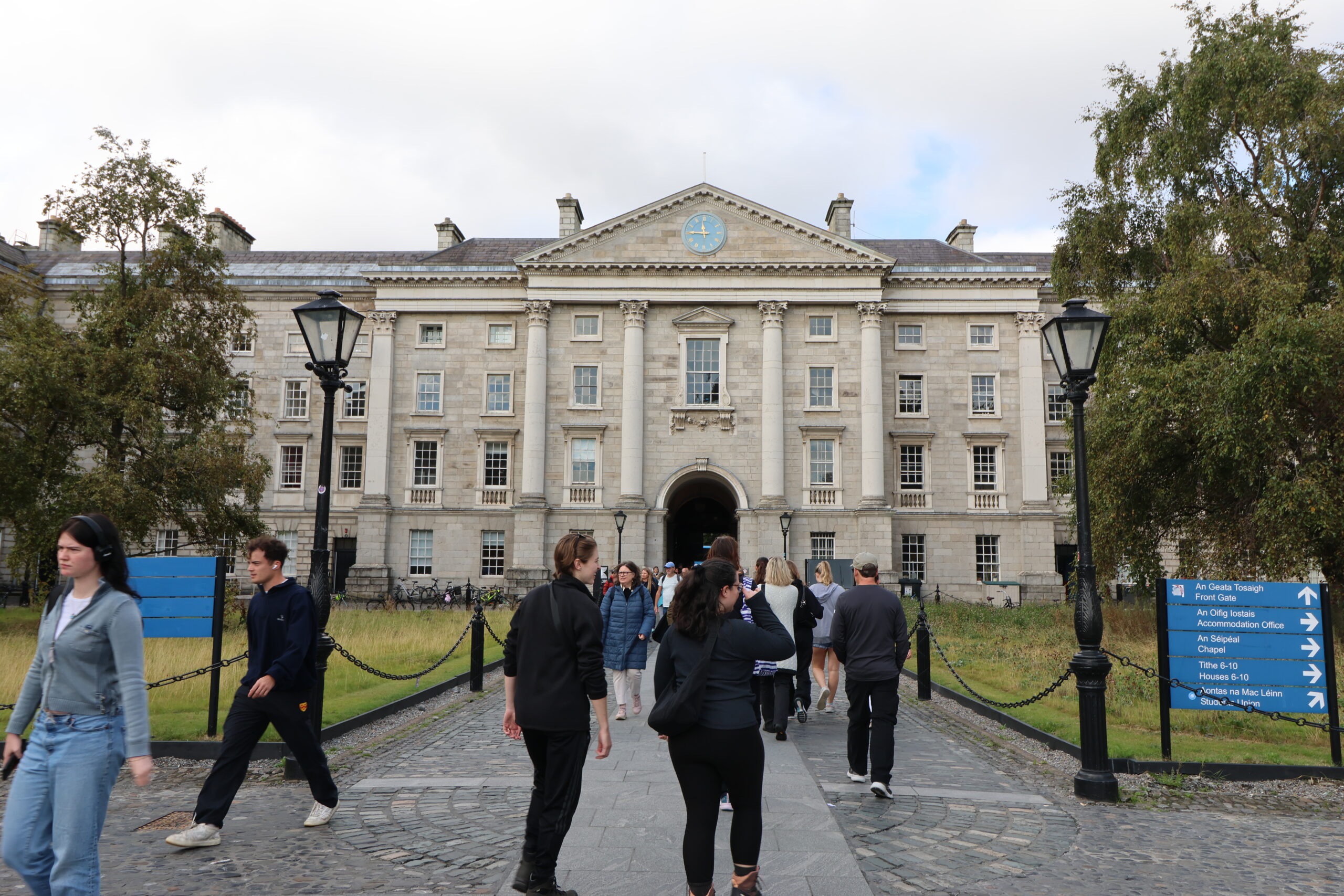In 2008, millions watched as the market crashed and the world changed overnight. This time was one of the hardest in recent economic history, and we still feel its effects today. The main downturn of Ireland’s economy came in what is known as the post-2008 Irish economic downturn; this was triggered by the global financial crisis, which caused Ireland’s banking system to collapse, leading to massive unemployment, a housing market crash, and government debt.
While this was a dark time, there was hope for Ireland’s economy, and the European Union and International Monetary Funds came to help. On December 16, 2010, the IMF approved a three-year Extended Fund Facility, essentially a financing agreement and package, for Ireland. This package included 45 billion from European lenders and Irish authorities contributing 17.5 billion from the cash reserves and liquid assets.
At this point, you might be wondering what all this economic jargon has to do with Trinity and university funding. It essentially boils down to the fact that post-2008, the higher education budget was never fully restored. Examples of this are rampant in students’ everyday lives, such as the inability to build 358 new beds at Trinity Hall after a lack of promised government funding left the project 40 million short. With the effects of today’s accommodation crisis leaving students from universities across the country homeless, shouldn’t the Irish government be doing all it can to rectify the crisis?
In recent years, the financial pressures facing Ireland’s higher education system have become increasingly unsustainable. While incremental funding increases have been made, they have been quickly outpaced by inflation: simple things like the cost of a pint have increased over 34% from 2015. These challenges have left universities struggling to maintain the high standards they are known for, and as a result, the cracks in the system are beginning to show.
Infrastructure is another area where the shortfall in funding is felt keenly. Universities are put in a position to accept more students to increase the amount of money received but do not have appropriate places to house them, leading to more displaced students. It also leads schools like Trinity to rely on tourists for income, which can disrupt student life.
Furthermore, these funding shortfalls compromise the ability to win competitive international research grants. In an increasingly competitive global marketplace, other countries are investing heavily in their universities to gain an edge in innovation and research. Proper investment in research capabilities is essential for Ireland to remain relevant in fields that require high levels of expertise and innovation.
The effects of underfunding are not only felt within the academic sphere but also ripple out into the wider economy. Universities are key players in driving economic growth, particularly through research and innovation. When universities are underfunded, their ability to contribute to economic development is curtailed. Research from higher education institutions often leads to new technologies and industries, which in turn create jobs and drive economic progress. Failing to invest in this sector could slow Ireland’s overall economic growth and reduce its competitiveness on the global stage.
Beyond the economic implications, universities also serve as cultural and social hubs within their communities. They are spaces for critical thinking, creative exploration, and the development of new ideas. When the resources of these institutions are stretched thin, it becomes more difficult to foster the kind of creative and free-thinking environment that President Michael D. Higgins described as a “vital resource for the future.”
The cultural and social contributions of universities cannot be understated. They play an essential role in producing graduates who are not only equipped with technical skills but also capable of critical thought and innovation. These graduates contribute to society in countless ways, whether through entrepreneurship, public service, or other professional roles. Undermining the ability of universities to properly educate and support students ultimately weakens the cultural fabric of the country.
The budget, released on October 1st, represented a crucial opportunity for Ireland to address these issues. The budget for 2025 shows hope for the future with a “€650m core funding package for Higher Education,” according to the Minister of Higher Education. While there are promises of a reduction in student contribution and an increase in the grant for postgraduate students, these were one-offs, and there are no promises of these in the future. The same can be said for the additional funding of €10 million for the Student Assitance Fund. This effort will not be enough to reverse decades of underfunding.
As Provost Linda Doyle’s letter to the college community emphasises, “we urgently need a real increase in core funding for our sector so that we can best support our students”. Incremental increases may provide short-term relief, but they are insufficient to address the structural problems facing the sector. A comprehensive, long-term funding model that reflects the growing demands placed on higher education is essential for ensuring the future success of Ireland’s universities.
The stakes are high. A failure to act now could result in a prolonged period of decline for the higher education sector, one that may take years—if not decades—to reverse. However, with proper investment, Ireland has the opportunity to not only sustain its universities but also help them thrive. A thriving university system can play a central role in the country’s cultural, social, and economic progress, driving innovation, fostering creativity, and producing the next generation of leaders and thinkers.
The issues facing Irish higher education are not isolated; they are deeply interconnected with the broader health and prosperity of the nation. The upcoming budget represents a pivotal moment. Will the government rise to the challenge and provide the necessary funding to ensure that Irish universities can continue to offer world-class education and research? Or will the system continue to deteriorate, with long-term consequences for the country’s future? The answer to these questions lies in the choices made by policymakers in the coming weeks.







